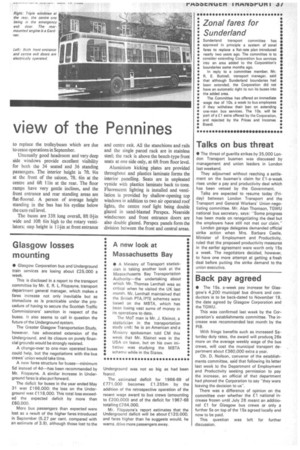Glasgow losses mounting
Page 39

If you've noticed an error in this article please click here to report it so we can fix it.
• Glasgow Corporation bus and Underground train services are losing about £25,000 a week.
This is disclosed in a report to the transport committee by Mr. E. R. L Fitzpayne, transport department general manager, which makes a fares increase not only inevitable but as immediate as is practicable under ,the procedure of having to secure the Scottish Traffic Commissioners' sanction in respect of the buses. It also seems to call in question the future of the Underground system.
The Greater Glasgow Transportation Study, however, has advocated extension of the Underground, and its closure on purely financial grounds would be strongly resisted.
A change-over to one-man operated buses could help, but the negotiations with the bus crews' union would take time.
A new fares structure for buses—minimum 5d instead of 4d—has been recommended by Mr. Fitzpayne. A similar increase in Underground fares is also put forward.
The deficit for buses in the year ended May 31 was £166,000: the loss on the Underground was £118,000. This total loss exceeded the expected deficit by more than £60,000.
More bus passengers than expected were lost as a result of the higher fares introduced in September (5.27 per cent, compared with an estimate of 3.9), although those lost to the Underground was not so big as had been feared.
The estimated deficit for 1968-69 of £771,000 becomes £1.255m by the addition of the retrospective operation of the recent wage award to bus crews (amounting to £200,000) and of the deficit for 1967-68 totalling £284,000.
Mr. Fitzpayne's report estimates that the Underground deficit will be about £120,000, and fares higher than he suggests would, he warns, drive more passengers away.




























































































































